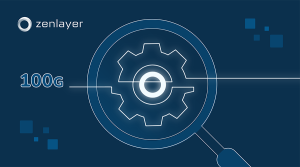Amidst the craze over AI, IoT and self-driving cars, gaming has been quietly growing at an exponential rate. The industry is poised to grow to $180.1 billion by 2021, while competitive eSports events are seeing 40 percent year-on-year growth.
Yet this fast pace of game innovation and development doesn’t come without pressure – game developers must flawlessly meet user expectations and prepare their servers for user growth.
That’s why game developers who place user satisfaction at the heart of strategy and have dependable bare metal infrastructure in place hold an important key to success.
Advantages of using bare metal servers
Dedicated bare metal servers offer a host of advantages for CPU-intensive gaming workloads and other latency-sensitive applications. By offering a single tenant environment without other users sharing the same resources, they provide more performance and stability. In addition, bare metal servers can be configured to exact specifications and game developers can mix virtual and bare metal infrastructure together.
Bare metal also offers the key advantage of fast deployment. Pay-as-you-go billing options also enable gaming companies to cost effectively scale up or down depending on peak and off-peak times; it’s easier than ever to spin up a machine and de-provision it when business needs change.
How bare metal has already transformed gaming
Today, many gaming companies use bare metal to create a robust gaming platform.
Take Player Unknown’s Battlegrounds (PUBG) as an example. PUBG is a battle royale multiplayer game that allows 100 players globally to parachute on to a map, scavenge for supplies and weapons, and attempt to be the last one standing.
As you can imagine, this requires a great amount of computing power and high-quality network service. Server response time is critical because the players are constantly moving around on the map. The quicker the server responds, the faster their actions are updated on other players’ screens. Even one millisecond of lag could result in virtual death.
In cases like this, bare metal servers are ideal. With lower ping and full control over the environment for easier updates and upgrades, gaming companies can deliver superior digital experiences.
Takeaways
Data-intensive applications like games require low latency and scalability, making bare metal servers a top choice when compared to multi-tenant alternatives. Gaming companies looking for cost savings and fast deployment are also well suited for bare metal servers.
Zenlayer offers a global network with strategic locations in the Americas, Europe and APAC.
To learn more about bare metal, contact a Zenlayer expert today.







